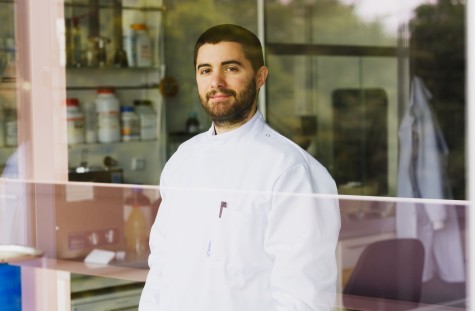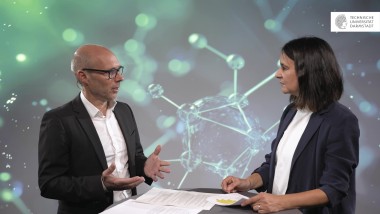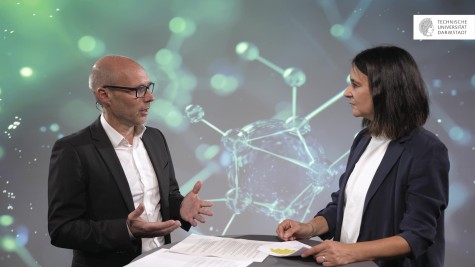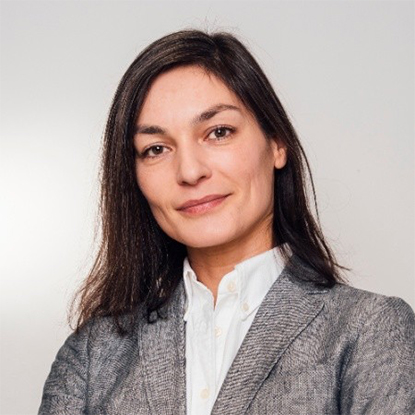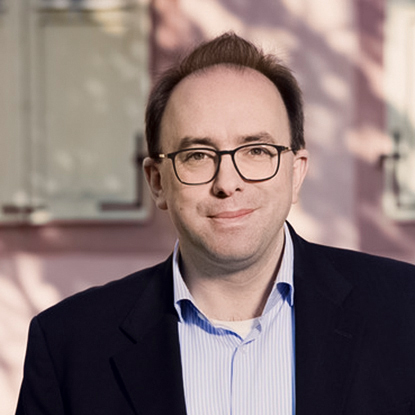-
![]()
![]()
M+M Symposium: Synthetic Biology goes…
2025/10/21
Synthetic biology is one of the most dynamic fields of research of our time: it combines biology, engineering, and materials research to develop innovative solutions for science and society. Under the motto “Synthetic Biology goes …”, the Research Field M+M is hosting the third M+M Symposium on 21. October 2025 from 14:00–17:30 in Lichtenberg-Haus, that will highlight various facets and fields of application of synthetic biology.
-
![]()
![]()
M+M Symposium
2024/11/25
We thank you for your participation!
The second M+M Symposium took place on 29. October 2024 in the Wilhelm-Köhler-Saal of the TU Darmstadt. The M+M Symposium is an open format for valuable exchange and free discussions on the broad spectrum of the Research Field Matter and Materials and the four profile topics, Materials for Circularity, Networks for Industry 4.0, Nuclear Science and Synthetic Biology. It is an excellent opportunity for the members to meet, network and discuss burning matters for the research field, which in turn strengthens its core values and identity.
-
![]() Picture: Iris Dillmann
Picture: Iris Dillmann![]() Picture: Iris Dillmann
Picture: Iris DillmannHow long did it take for our sun to form?
2024/11/14
Long-sought measurement to determine the timescale of the Sun’s birth
Have you ever wondered how long it took our Sun to form in its stellar nursery? An international collaboration of scientists is now closer to an answer. They succeeded in the measurement of the bound-state beta decay of fully-ionised thallium (205Tl81+) ions at the Experimental Storage Ring (ESR) of GSI/FAIR. This measurement has profound effects on the production of radioactive lead (205Pb) in asymptotic giant branch (AGB) stars and can be used to help determine the Sun’s formation time. The results have been published in the journal Nature.
-
![Illustration of lithium-ion batteries]() Picture: Betsy Scrip
Picture: Betsy Scrip![Illustration of lithium-ion batteries]() Picture: Betsy Scrip
Picture: Betsy ScripEarly detection makes batteries safer
2024/10/30
TU Darmstadt and MIT develop methods for monitoring with machine learning
The safe use of lithium-ion batteries, such as those used in electric vehicles and stationary energy storage systems, critically depends on condition monitoring and early fault detection. Failures in individual battery cells can lead to serious issues, including fires. To mitigate these risks, researchers at TU Darmstadt and the Massachusetts Institute of Technology (MIT) have developed novel methods for battery analysis and monitoring that leverage physically constrained machine learning approaches.
-
![Porträtbild Dr. Anna C. Bakenecker]() Picture: Fraunhofer IMTE
Picture: Fraunhofer IMTE![Porträtbild Dr. Anna C. Bakenecker]() Picture: Fraunhofer IMTE
Picture: Fraunhofer IMTEMicrorobots for drug transport
2024/10/28
LOEWE Start Professorship: Anna C. Bakenecker receives two million euros
Dr Anna C. Bakenecker has been awarded a LOEWE Start Professorship at TU Darmstadt. The expert in medical physics is working on the development, control and monitoring of nano- and microrobots that are designed to transport drugs to their target sites in the body. The LOEWE research funding programme of the state of Hesse is providing around two million euros over a period of six years.
-
![Dr. Andrea Belluati]() Picture: Katrin Binner
Picture: Katrin Binner![Dr. Andrea Belluati]() Picture: Katrin Binner
Picture: Katrin BinnerHarnessing the strengths of two worlds
2024/10/15
Biotechnologist Andrea Belluati to lead new Emmy Noether group
A fascinating fusion of two worlds: A new Emmy Noether research group at TU Darmstadt focuses on hybrid systems that combine artificial and living cells to achieve functions that neither can perform alone. Biotechnologist Andrea Belluati is funded by the German Research Foundation (DFG) with 1.8 million euros for his project “Polymer Incorporation for the Engineering of Symbiosis” over the next six years. The newly designed hybrid systems might come to task in more effective drug delivery or sustainable biofuel production.
-
![]()
![]()
Communicating biomaterials
2024/09/25
Professor Heinz Koeppl, Darmstadt spokesman of the project ‘CoM2Life’, in a video interview
The cluster initiative ‘COM2Life’ is a project within the framework of the Rhine-Main Universities (RMU), with TU Darmstadt and Johannes Gutenberg University Mainz as partners. Professor Koeppl introduces the research project, which aims to develop a new generation of soft biomaterials. Part one of a three-part video series on TU Darmstadt's Cluster of Excellence applications.
-
![]() Picture: ImageFlow – stock.adobe.com/Katrin Binner/Klaus Mai/Patrick Bal
Picture: ImageFlow – stock.adobe.com/Katrin Binner/Klaus Mai/Patrick Bal![]() Picture: ImageFlow – stock.adobe.com/Katrin Binner/Klaus Mai/Patrick Bal
Picture: ImageFlow – stock.adobe.com/Katrin Binner/Klaus Mai/Patrick BalYoung, research-focused, award-winning
2024/09/05
European Research Council supports four projects at TU Darmstadt with ERC Starting Grants
This success is impressive: four young researchers at TU Darmstadt have been awarded a Starting Grant by the European Research Council (ERC) for excellent and innovative fundamental and frontier research. The selected early career researchers will be receiving a total of around 1.5 million euros each for their projects on learning robot systems, digital 3D doppelgangers, permanent magnets and deformed atomic nuclei over a period of five years. This excellent achievement once again shows TU Darmstadt’s research prowess – including by international standards.
-
![]() Picture: Katrin Binner
Picture: Katrin Binner![]() Picture: Katrin Binner
Picture: Katrin BinnerSustainable, safe, affordable: researching innovative magnets
2024/09/05
Dr. Pelin Tozman receives ERC Starting Grant totalling 1.5 million euros
Permanent magnets are crucially important for green technologies. However, their production requires expensive and environmentally harmful raw materials. That is why material scientist Dr. Pelin Tozman from TU Darmstadt is researching resource-friendly alternatives. Her project, MAG-TOOL, is now receiving a Starting Grant totalling 1.5 million euros from the European Research Council (ERC) for five years.
-
![]() Picture: Klaus Mai
Picture: Klaus Mai![]() Picture: Klaus Mai
Picture: Klaus MaiBreaking new ground in nuclear physics
2024/09/05
ERC Starting Grant for physicist Alexander Tichai
Alexander Tichai is receiving a Starting Grant from the European Research Council (ERC) for his project “DeformedNuclei – Ab initio pathway to deformed nuclei”. In the project the theoretical physicist is developing new methods for investigating deformed atomic nuclei and analysing the effects of interaction models on the predicted nuclear shapes. The funding totals 1.5 million euros.
Research Field M+M
Archive
Archive












